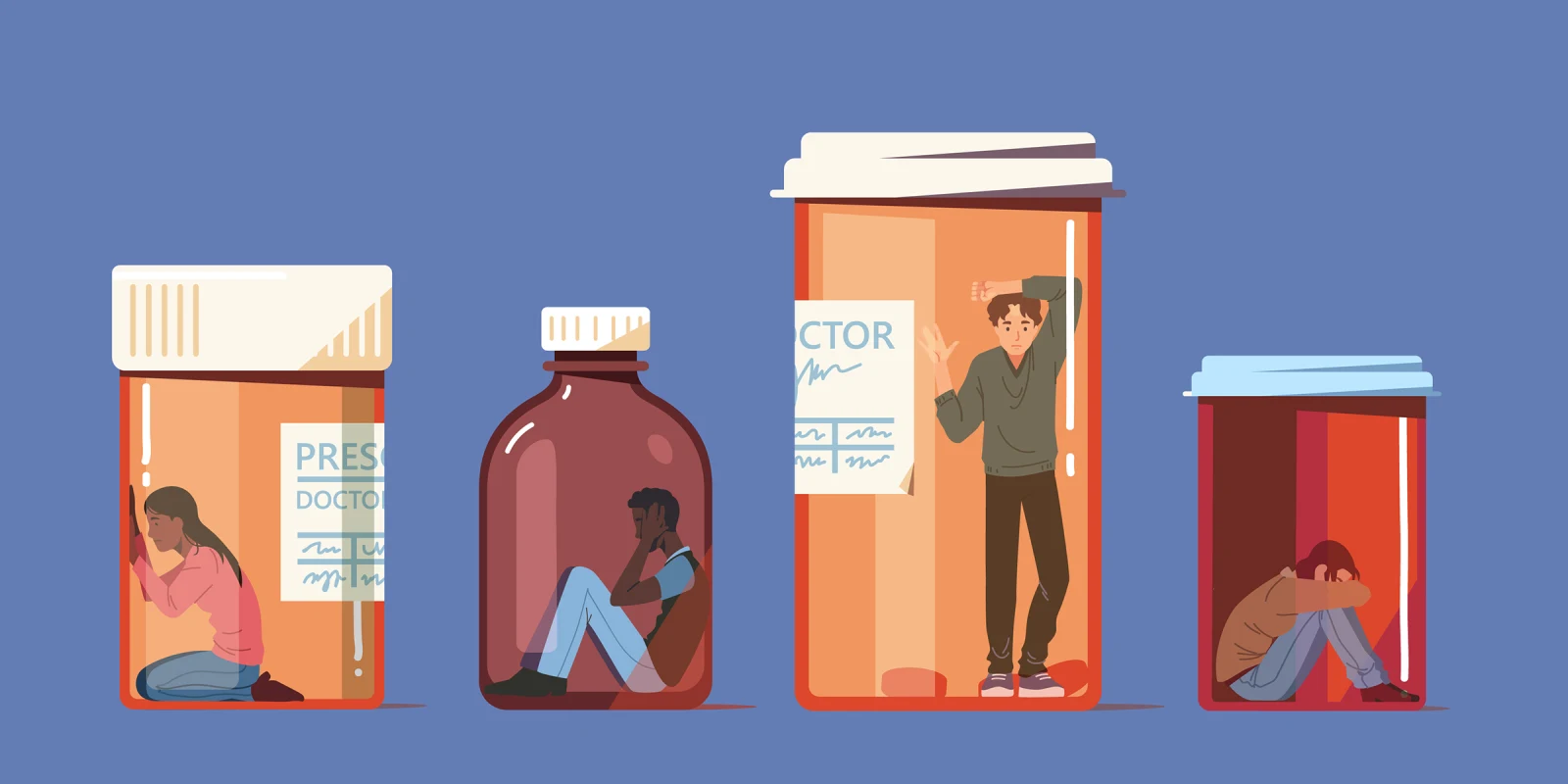I am April. I am a pharmacist.
And I have a substance use disorder.
My struggles with substance misuse began soon after graduating from pharmacy school. As I transitioned from the highly structured academic environment, where performance was rewarded and acknowledged, to working a traditional pharmacy job, I had a lot more free time. I had feelings of dissatisfaction. The job was stressful. When I wasn’t working, I wanted to relax and escape boredom. After all, I’d worked hard and deserved it, right? Conveniently, my husband was in his first professional year of pharmacy school, and I could hang out with him and attend pharmacy school parties.
Just a little over a year after I had become licensed, I faced the consequences of my substance misuse. On that day, in early August 2008, my world came crashing down on me. I was investigated by the Board of Pharmacy and required to become a “member” of the Mississippi Association of Recovering Pharmacists (MARP).
I never envisioned my career and life would head in this direction. I was just doing my partying a little later in life. But it got out of hand. I wanted so very much to be able to go back in time and change the course of events. I hoped everyone would just forget what happened. I promised myself I would never do it again.
While I was resistant to the idea at first, MARP has been a critical part of my recovery. They supported me step by step through the process. With reassurance and encouragement, they helped me pursue treatment. Over the next six years, I met all the requirements of the Board of Pharmacy and MARP. I was able to get my career back on track.
Although I was able to regain my professional standing, I was deeply embarrassed. I wanted to avoid everyone in the pharmacy field who might know about my issues with substances. To my family and friends, I acknowledged I had made poor decisions. I did things I was not proud of, but in my mind, my issues were minor. I didn’t view myself as someone with an addiction or a substance use disorder. Everything was great.
Until …
August 2016. I relapsed. But this time was different. I was able to be more open-minded. I now recognized that I needed treatment. I began to work on myself and address the root causes of my substance use.
I've struggled with the stigma of being a pharmacist in recovery. And it’s made my recovery so much harder.
One experience sticks out in my mind. I was working in the banking industry between pharmacy jobs in 2018. As it happened that day, two pharmacists I went to pharmacy school with walked into the lobby of the bank. I left my workstation and hid in the break room to avoid them seeing me.
I felt like a failure, a fraud. Not good enough. A pharmacist should be smarter than to end up addicted to medications, right? Seeing these people stirred up all these negative feelings. In reality, these two individuals said nothing to me. They probably didn’t even know I was there. But I anticipated their judgment (stigma), and I felt shame (self-stigma).
I've lost many job opportunities over the years due to unfair company policies that prohibit hiring pharmacists with a license on probation. It’s hard to describe the feeling when you nail an interview, and the manager seems very interested in hiring you. You think the job is a good fit. But once you mention MARP or a history of substance use, the entire conversation and tone changes. The interview and chat wrap up quickly. You never hear back. That's stigma.
These feelings of inadequacy and being ostracized by my colleagues kept me in a cycle of relapsing and recovering. I went through numerous cycles. The self-stigma became stronger.
Many pharmacists (and nurses and other health professionals) in recovery are forced to take minimum-wage jobs or remain unemployed for years, praying they can find meaningful employment. Fortunately for me, I have found work that capitalizes on my advanced knowledge and skills.
We need to stand up for our fellow health care professionals in recovery and advocate for opportunities for them to continue to practice their profession in a safe environment. This requires education and advocacy. Working in a pharmacy can be especially problematic for someone with a substance use disorder, given the access to controlled substances. It’s a temptation. Nurses, physicians, dentists, and veterinarians face similar challenges. This is why we need to think outside the box. We need to help those with an SUD find non-traditional roles working in settings where there is little or no access to controlled substances. Health professionals who have experienced addiction have real-world knowledge and can help educate others. Unfortunately, our society and our institutions erect many barriers to employing health professionals with an SUD. These barriers are often too difficult to overcome.
We can all work to support health professionals in recovery by critically examining our biases and reconsidering institutional policies.
I am a wife, a mom, a friend, and a coworker. And I’m a strong and proud advocate for stigma reduction. Today, I’m in recovery, and I no longer let my addiction define me.
Previously published in Stigma Unraveled
Image by Iconic Bestiary / Shutterstock







